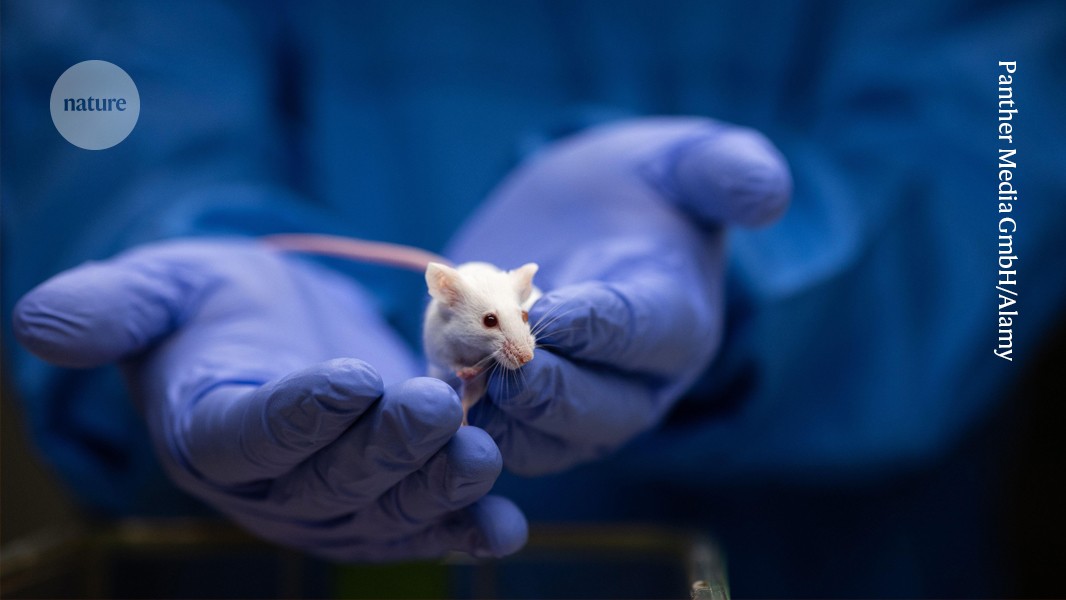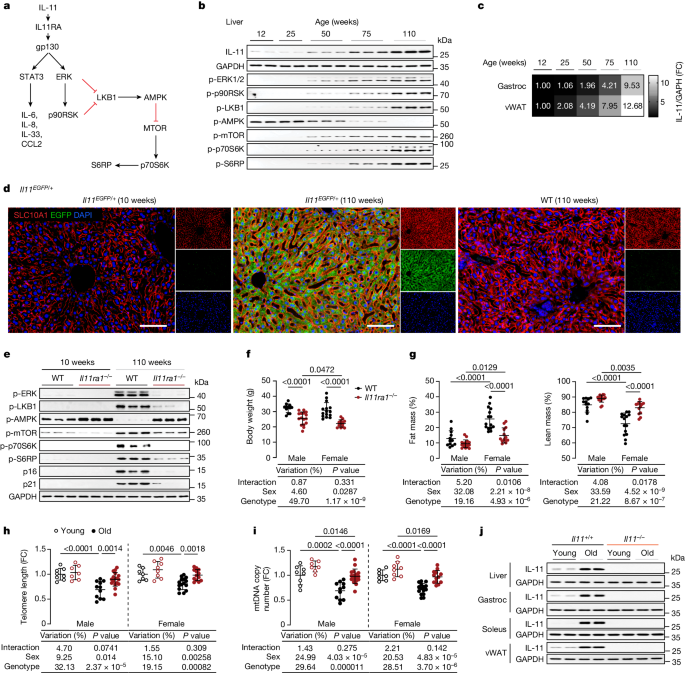A protein that promotes inflammation could hold the key to a longer, healthier life. Blocking the protein, called IL-11, in middle-aged mice boosted metabolism, reduced frailty and increased lifespan by about 25%.
The mice didn't just live longer, they were shielded from key signs of aging. Anti-IL-11 therapy boosted metabolism, with the animals producing calorie-burning brown fat, not problematic stores of white fat, blocked the loss of muscle mass and strength, and protected against multimorbidity and cardiometabolic diseases.
The magnitude of the response resembles that seen in some studies when mice are treated with rapamycin, a prominent drug in the anti-ageing field that is being tested for its benefits. But rapamycin has been linked to unwanted side effects, says Cook, who co-founded a Singapore-based company called Enleofen that is developing drugs against fibrosis. “Rapamycin is good for lifespan, but not healthspan,” he says.
Cancer is a leading cause of death in old mice, and autopsies in this study showed that inhibiting IL-11 expression significantly reduced this disease. (Clinical trials of an anti-IL 11 drug in combination with immunotherapy for cancer is in the pipeline.)
With an anti-IL-11 therapy already in the early phases of testing for fibrotic lung disease, the researchers have been pleased with its safety profile.

 www.nature.com
www.nature.com

 www.news-medical.net
www.news-medical.net

 newatlas.com
newatlas.com

 www.nature.com
www.nature.com
The mice didn't just live longer, they were shielded from key signs of aging. Anti-IL-11 therapy boosted metabolism, with the animals producing calorie-burning brown fat, not problematic stores of white fat, blocked the loss of muscle mass and strength, and protected against multimorbidity and cardiometabolic diseases.
The magnitude of the response resembles that seen in some studies when mice are treated with rapamycin, a prominent drug in the anti-ageing field that is being tested for its benefits. But rapamycin has been linked to unwanted side effects, says Cook, who co-founded a Singapore-based company called Enleofen that is developing drugs against fibrosis. “Rapamycin is good for lifespan, but not healthspan,” he says.
Cancer is a leading cause of death in old mice, and autopsies in this study showed that inhibiting IL-11 expression significantly reduced this disease. (Clinical trials of an anti-IL 11 drug in combination with immunotherapy for cancer is in the pipeline.)
With an anti-IL-11 therapy already in the early phases of testing for fibrotic lung disease, the researchers have been pleased with its safety profile.

Mice live longer when inflammation-boosting protein is blocked
Humans also have the protein, called IL-11, offering hope for a future longevity treatment.

Breakthrough in aging research: Blocking IL-11 extends lifespan and improves health in mice
Blocking IL-11 signaling extends lifespan and healthspan in mice, reducing age-related metabolic decline, frailty, and cancer incidence.

Anti-aging drug extends life up to 25%, staves off frailty and disease
For the first time, scientists have demonstrated how a specific protein increases in our organs as we get older and actively promotes the aging process. By blocking this activity, it could not only help us live longer, but slow the physical decline that is, right now, an inevitable part of aging.

Inhibition of IL-11 signalling extends mammalian healthspan and lifespan - Nature
IL-11 is identified as a key regulator of ERK–AMPK–mTORC1 signalling, metabolism, inflammation and age-related disease and lifespan in mouse and human.
Last edited:















